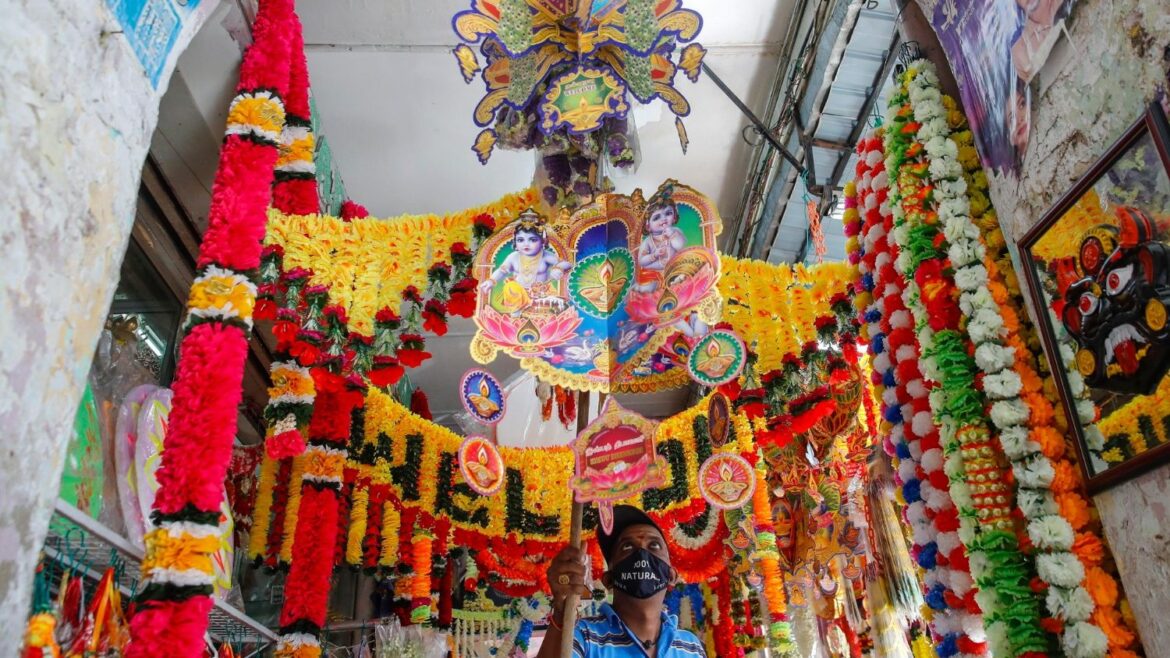
The Dicastery for Interreligious Dialogue sends well wishes to those celebrating the Hindu feast of Deepavali, and invites Christians and Hindus to “join hands in both small and great ways to nurture peace in our homes, communities and societies.”
By Deborah Castellano Lubov
“As believers rooted in our respective faith traditions, and as people united by shared values and a common concern for peace, may we – Hindus and Christians, together with those of other religions and all people of goodwill – join hands in both small and great ways to nurture peace in our homes, communities and societies.”
This was at the heart of the message of the Vatican’s Dicastery for Interreligious Dialogue to those celebrating the Hindu feast of Deepavali (or Diwali), this year being celebrated on Monday, October 20.
The letter, with the theme, “Hindus and Christians: Building world peace through dialogue and collaboration in the spirit of Nostra Aetate,” was signed by the Dicastery’s Prefect, Cardinal George Jacob Koovakad, and its Secretary, Msgr. Indunil Janakaratne Kodithuwakku Kankanamalage.
The feast of Deepavali, which in Sanskrit means “row of oil lamps” and is one of the most important Hindu feast days, celebrates the victory of truth over falsehood, light over darkness, and good over evil.
May the festival brighten your lives
In their letter, the Vatican officials began by expressing their wish that the festival of lights “brighten your lives and bring happiness, unity and peace to your families and communities!”
They recalled that the eighth day after Deepavali this year will mark the sixtieth anniversary of Nostra Aetate (28 October 1965), the Catholic Church’s landmark document that encouraged Catholics around the world to engage in dialogue and collaboration with people of other religious traditions.
On this diamond jubilee, Cardinal Koovakad underscored, Nostra Aetate calls us to renew our commitment to promoting interreligious dialogue as a path to peace.
“During this festive season,” he said, “we invite you to join us in reflecting on how Christians and Hindus, together with people of all faiths and goodwill, can strengthen our shared efforts for peace through dialogue and collaboration in the spirit of Nostra Aetate.”
Such a spirit is rooted in “promoting unity and love among people, indeed among nations” by focusing on “what people have in common and what draws them to fellowship.”
Much more progress to be made
While much progress has been made since Nostra Aetate, much more has to be done.
“In today’s world, where mistrust, polarization, tensions and divisions are on the rise,” the Vatican officials underscored, “interreligious dialogue is more necessary than ever. It must continue to sow seeds of unity and harmony, becoming a beacon of hope for all.”
Recalling Pope Leo XIV’s words to build bridges, the Vatican officials reaffirm that “interreligious understanding and collaboration must find a place in our daily lives and become a natural way of living together.”
Task entrusted to all
The Holy Father, they reiterated, reminds us that fostering a culture of dialogue and collaboration for peace is “a task entrusted to all, believers and non-believers alike, who must advance it through reflection and a praxis inspired by the dignity of the person and the common good.”
Only by working together, they said, can we secure and sustain a peace founded on truth, justice, love, and freedom (cf. John Paul II, Message for the Celebration of the World Day of Peace, 1 January 2003).
Role of the family and religious traditions
In the text, the Dicastery officials highlight the role of the family as the primary place of education in life and faith, with a preeminent role in nurturing these values. Religious traditions also have a crucial responsibility in fostering peace, with religious leaders bearing the moral duty to lead by example – encouraging their followers to respect diversity and to build bridges of friendship and fraternity.
They also remembered the role of educational institutions and the media to likewise play essential roles in shaping hearts and minds toward peaceful coexistence.
Finally, the message concludes with an invitation for Christians and Hindus to join hands together in both small and great ways “to nurture peace in our homes, communities and societies.”

